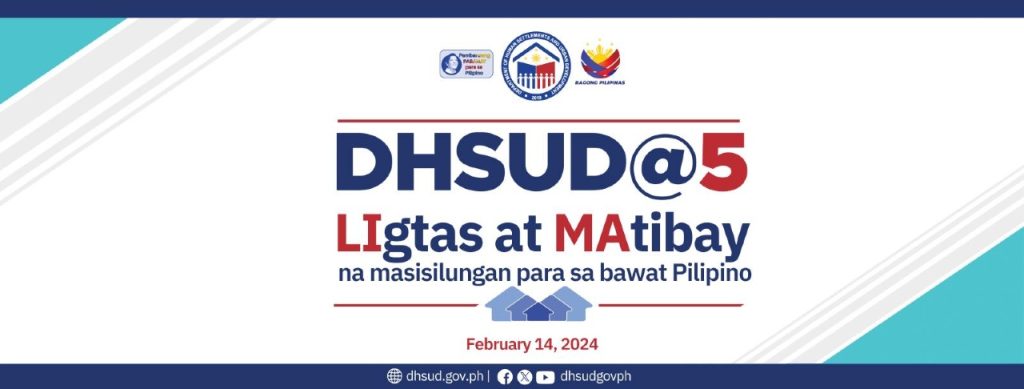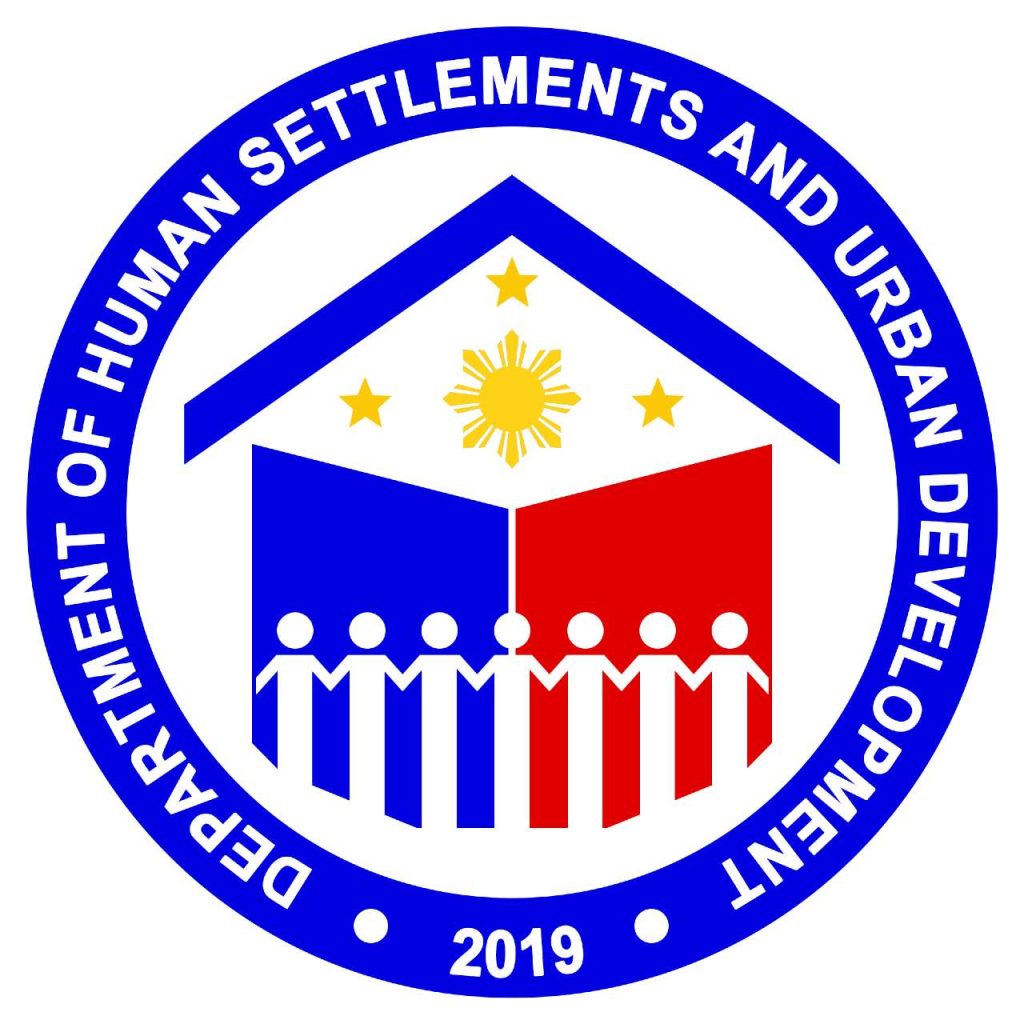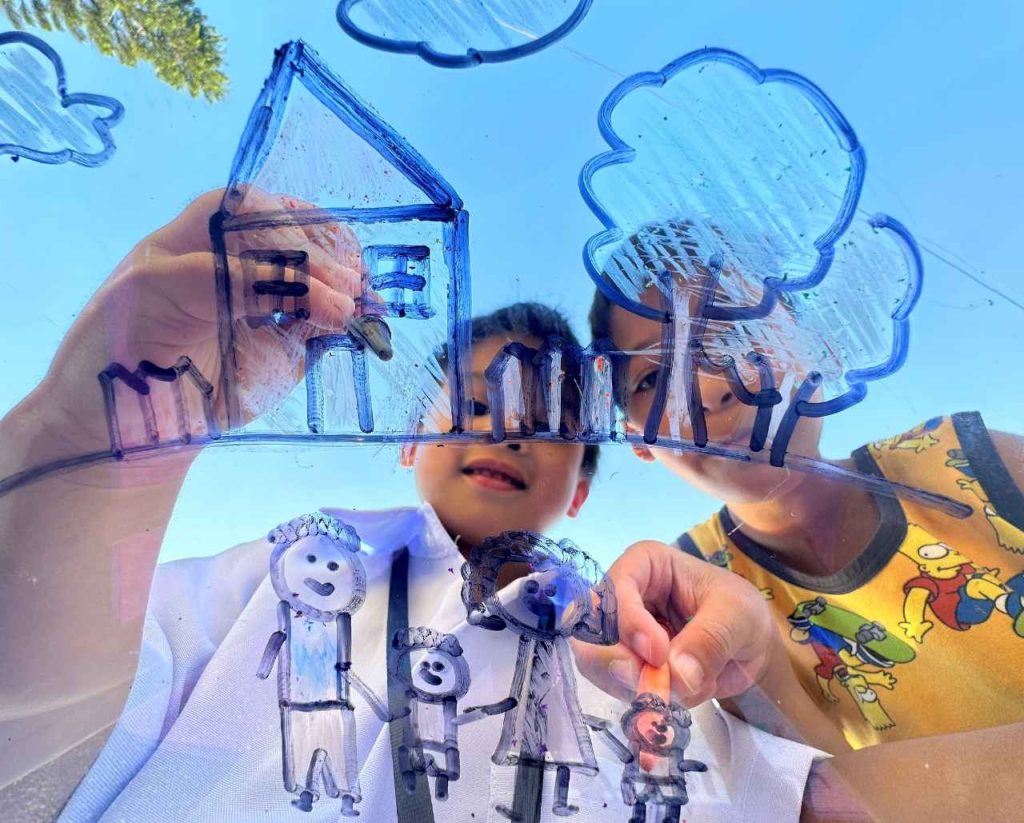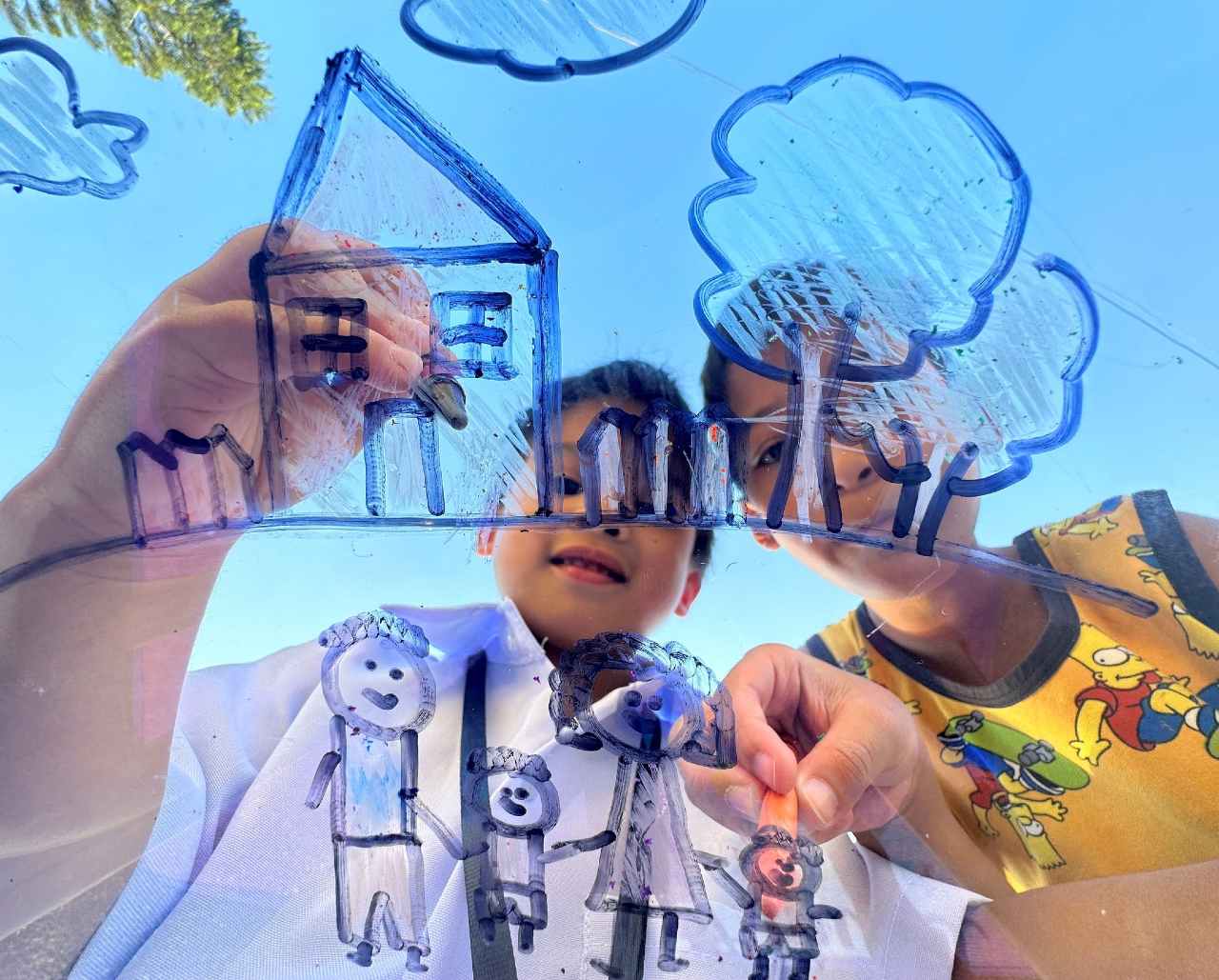The Department of Human Settlements and Urban Development (DHSUD) is the primary government agency in the Philippines responsible for housing, human settlements, and urban development. Established in 2019, DHSUD consolidates the functions of the Housing and Urban Development Coordinating Council (HUDCC) and the Housing and Land Use Regulatory Board (HLURB), focusing on policy-making, regulation, and program coordination.
DHSUD aims to provide affordable and adequate housing for all Filipinos, with a particular focus on underprivileged communities. The department also ensures sustainable urban development through effective land use planning and environmental protection initiatives.
What is DHSUD?
The DHSUD, officially known as the Department of Human Settlements and Urban Development, is the main government agency in the Philippines responsible for housing and urban development. Established on February 14, 2019, under Republic Act 11201, it merged the functions of the Housing and Urban Development Coordinating Council (HUDCC) and the Housing and Land Use Regulatory Board (HLURB), except for adjudication.
DHSUD focuses on planning, policy-making, regulation, and coordinating programs related to housing and human settlements. It also oversees performance monitoring to ensure access to affordable housing and urban development for all Filipinos. The department operates through 16 regional offices across the country to address local housing needs.
History

The DHSUD was established through Republic Act No. 11201, signed by President Rodrigo Duterte on February 14, 2019. This law merged the Housing and Urban Development Coordinating Council (HUDCC) and the Housing and Land Use Regulatory Board (HLURB), forming a new agency to oversee housing and urban development. The consolidation was based on House Bill 6775 and Senate Bill 1578, which were passed in late 2018. The Implementing Rules and Regulations (IRR) for RA 11201 were signed on July 19, 2019, with full implementation planned for January 1, 2020. The DHSUD now manages housing policies, urban planning, and regulatory functions in the Philippines.
Logo

The DHSUD logo features several symbolic elements:
- House Structure: The roof shape at the top symbolizes shelter, representing the DHSUD’s mandate to ensure adequate and affordable housing for Filipinos.
- Sun and Stars: The sun and three stars are elements from the Philippine flag, symbolizing the nation’s unity, sovereignty, and commitment to national development.
- Human Figures: The stylized figures of people in blue and red represent the Filipino people, emphasizing inclusivity and the government’s commitment to serving all citizens.
- Color Scheme: The blue and red colors are also derived from the Philippine flag, reinforcing the idea of national service and the DHSUD’s role in supporting the country’s development.
- Text and Date: The outer ring contains the department’s name and the year “2019,” marking the year DHSUD was established, reflecting its authority and mission.
Mission
“To improve the lives of the Filipino people as the primary government agency in the management of housing, human settlements and urban development.”
Vision
“A strong institution and catalyst for the provision of adequate and affordable housing, inclusive human settlements and well-planned communities for every Filipino family.”
Core Values
The DHSUD is guided by the following core values as it moves forward toward its vision of adequate and affordable housing, inclusive human settlements, and well-planned communities for every Filipino family.
- Dynamism
- Honesty
- Service Excellence
- Unity of Purpose
- Dedication
Service Pledge
Their promise to serve is summarized in this service pledge statement which reads,
“We, the civil servants of the Department of Human Settlements and Urban Development, shall pursue excellence in governance in promoting sustainable, healthy, productive and safe human settlements through housing and urban development.”
Mandate
As an agency, the DHSUD is mandated by law to do the following:
- Primary Housing Authority: The DHSUD is the main government body responsible for overseeing housing, human settlements, and urban development across the country.
- Central Planning and Regulation: The department handles planning, policy-making, regulation, and program coordination related to housing and urban development, focusing on ensuring that basic needs are accessible and affordable.
- National Housing Strategy: DHSUD is tasked with creating a national strategy to provide sufficient and affordable housing for all Filipinos, aligning all related policies and programs to achieve this goal.
- Land Use Oversight: The department ensures that local government units (LGUs) follow land use plans and zoning ordinances by monitoring and enforcing compliance, including penalties for violations.
- Regulating Real Estate: DHSUD regulates real estate developments like subdivisions and condominiums, setting and enforcing rules and standards, and issuing penalties for non-compliance.
- Supervising Homeowners’ Associations: The department oversees the registration and regulation of Homeowners’ Associations (HOAs), ensuring they comply with laws and imposing fines for any violations.
Powers and Functions
The Department is also given the right to exercise the following powers and functions:
Policy Development and Coordination
1. Create national housing policies and standards that align with the country’s development goals, working with both local and national groups.
2. Develop housing finance and production systems to make housing more affordable and sustainable.
3. Design housing programs, especially for the homeless and underprivileged, in coordination with related agencies.
4. Conduct research and studies to support housing and urban development.
5. Create a plan for disaster-resilient housing to protect communities from climate change and disasters.
6. Monitor and report on the performance of government agencies and local governments involved in housing and urban development.
Environmental, Land Use, and Urban Planning
1. Manage a system to track housing data, such as land inventories and housing stocks, while ensuring local government plans are followed.
2. Help local governments improve their housing and urban development plans, such as creating Local Housing Boards and complying with laws.
3. Assist local governments in using funds for socialized housing and other urban development projects.
4. Manage unused government lands for urban development, especially for housing, while excluding lands held in trust for specific purposes.
5. Set land use planning and zoning standards to guide cities and towns in their development.
6. Develop a plan for establishing government centers across the country.
Housing and Real Estate Regulation
1. Implement programs to promote the development of new housing estates, towns, and urban renewal projects, involving local governments and private groups.
2. Oversee the development of socialized and economic housing sites, using them to fund new housing projects.
3. Implement a single system to regulate all aspects of housing and urban development projects.
4. Take over and complete unfinished or abandoned real estate projects, regulating the use of roads and streets in these areas.
Homeowners Associations and Community Development
1. Register and oversee homeowners associations in housing projects.
2. Support housing cooperatives and community organizations in implementing housing programs.
3. Encourage partnerships between the government and private sectors to provide housing and economic opportunities for the homeless and underprivileged.
4. Oversee a unified system for regulating all housing and urban development activities without interfering with other agencies.
General Powers
1. Enter into agreements and partnerships, both domestic and international, to support housing and urban development.
2. Accept donations and grants from local and foreign sources for housing-related purposes, within legal limits.
3. Handle government responsibilities arising from international agreements on housing and urban development.
4. Set and collect fees for services provided, depositing the revenue into the national treasury.
5. Recommend new laws or changes to existing ones to improve housing policies.
6. Promote the use of local materials and technologies in housing construction.
7. Implement model housing projects, using eminent domain if necessary.
8. Open subdivision roads to the public when needed, after consulting with stakeholders.
9. Perform any other related duties as required by law.
Organizational Structure
The DHSUD is organized into the Office of the Secretary, along with various bureaus, services, and regional offices. The Office of the Secretary includes the Department Secretary, Undersecretaries, Assistant Secretaries, and their support staff. The Secretary is supported by three Undersecretaries and three Assistant Secretaries, appointed by the President based on the Secretary’s recommendations, with at least one of each being career officers.
DHSUD oversees several key shelter agencies:
- National Housing Authority: Responsible for producing housing units.
- Pag-IBIG Fund (Home Development Mutual Fund): Manages a national savings program and provides affordable housing loans for Filipino workers.
- Social Housing Finance Corporation: Focuses on social housing programs for low-income families, both formal and informal settlers.
- National Home Mortgage Finance Corporation: Facilitates affordable home loans through a secondary mortgage market.
The DHSUD also includes three bureaus:
- Environmental, Land Use, and Urban Planning and Development Bureau: Handles urban planning, land use monitoring, and provides technical assistance.
- Housing and Real Estate Development Regulation Bureau: Regulates real estate developments, including subdivisions and condominiums, and enforces penalties for violations.
- Homeowners Association and Community Development Bureau: Develops policies and programs for homeowners’ associations and ensures their proper implementation across regional offices.
Benefits
Here are some benefits brought by the establishment of DHSUD to the Filipino people:
- Affordable Housing Solutions: DHSUD’s 4PH Program provides subsidies and financing to make homes more affordable for low-income families.
- Sustainable Urban Development: DHSUD oversees urban planning, ensuring land use aligns with environmental and community needs. It has facilitated 754 comprehensive land use plans.
- Consumer Protection: The department regulates housing and real estate, issuing licenses and overseeing professionals to protect homebuyers.
- Community Development: DHSUD supports 24,571 homeowners associations, fostering community engagement and development.
- Disaster Resilience: Programs like the Yolanda Housing Program provide durable, disaster-resistant homes for families affected by natural disasters.
- Economic Growth: DHSUD’s initiatives create construction jobs and have a positive economic impact.
Overall, DHSUD improves lives by providing affordable housing, sustainable urban development, consumer protection, community support, disaster resilience, and economic growth.
Coverage
The DHSUD serves a diverse range of beneficiaries through its various programs and services, primarily focusing on low-income families and informal settler families (ISFs). Here are the key coverage areas and beneficiaries:
- Low-Income Families: DHSUD’s programs, particularly the Pambansang Pabahay Para sa Pilipino (4PH) Program, target low-income families by providing affordable housing solutions and financial assistance.
- Informal Settler Families (ISFs): With a goal of achieving zero ISFs by 2028, DHSUD aims to construct one million housing units annually, addressing the needs of approximately 3.7 million ISFs across the country, particularly in urban areas like Metro Manila.
- Local Government Units (LGUs): DHSUD collaborates with LGUs to facilitate housing projects, providing funding and support for local planning and implementation of housing initiatives.
- Homeowners Associations: The department supports the establishment and management of homeowners associations to promote community development and engagement among residents.
- Disaster-Affected Communities: DHSUD provides resilient housing solutions for families affected by natural disasters, ensuring they have safe and durable homes.
- Construction Workers and Related Industries: The housing initiatives are expected to create around 1.7 million jobs annually in the construction sector, benefiting workers and boosting economic recovery.
Other beneficiaries include:
- Buyers: Protected from scams and substandard properties, and benefit from affordable housing programs.
- Developers: Experience streamlined regulations and clearer requirements, leading to faster project processing.
- Homeowners Associations (HOAs): Supported in establishment and management, with required registration to ensure effective governance.
- Brokers and Salespersons: Ensured professionalism and accountability through registration and oversight, with penalties for illegal activities.
- Local Government Units (LGUs): Receive collaboration for housing projects, land use planning assistance, and technical support for land acquisition and titling.
Programs and Services

Here are some of their programs and services offered to the public:
1. Pambansang Pabahay Para sa Pilipino (4PH) Program
A flagship housing initiative aimed at providing affordable housing solutions for low-income families, targeting the construction of six million homes by 2028.
2. Environmental, Land Use and Urban Planning and Development
This service focuses on sustainable urban planning, ensuring that land use aligns with environmental standards and community needs.
- Land Use Plan Status Dashboard: A tool for monitoring the progress and status of local land use plans, facilitating transparency and accountability in urban development.
3. Housing and Real Estate Development Regulation
This involves overseeing compliance with housing regulations and standards, ensuring safe and sustainable development practices in real estate.
- List of Projects with License to Sell: A registry of housing projects that have been granted official licenses, ensuring that buyers can trust the legitimacy of these developments.
- List of Projects with Cease and Desist Order: A record of housing projects halted due to regulatory non-compliance, protecting consumers from potential risks.
- List of Real Estate Brokers and Salespersons: A directory of licensed real estate professionals, promoting transparency and professionalism in the housing market.
- Registration Guidelines and Requirements: Detailed instructions for individuals and entities seeking to register for housing programs, ensuring clarity in the application process.
- Buyer’s Guide: A resource providing essential information for prospective homeowners, including tips on navigating the housing market and understanding rights.
4. Homeowners Associations and Community Development
Support for the establishment and management of homeowners associations, fostering community engagement and development initiatives.
Video: DHSUD Profile
Learn more about the DHSUD and their programs and services by watching this video:
Summary
The DHSUD works to advance housing and urban development across the Philippines by integrating policy-making, regulation, and program coordination. Through its comprehensive initiatives, DHSUD strives to enhance affordable housing access, offer financial aids, promote sustainable urban growth, and ensure community development, significantly impacting various stakeholders and improving the quality of life for many Filipinos.
Contact Information
Department of Human Settlements and Urban Development (DHSUD)
Main Office Address: DHSUD Building, Kalayaan Avenue, corner Mayaman Street, Diliman, Quezon City, 1101
Contact Information: 8424 40 70 | 0961-137-0196
Email Address: info@dhsud.gov.ph
Official Website: https://dhsud.gov.ph/
Official Social Media Pages
Facebook: https://web.facebook.com/DHSUDgovph/
Youtube: https://www.youtube.com/channel/UCoxr6_WNpG-kyATplwRbQIA
